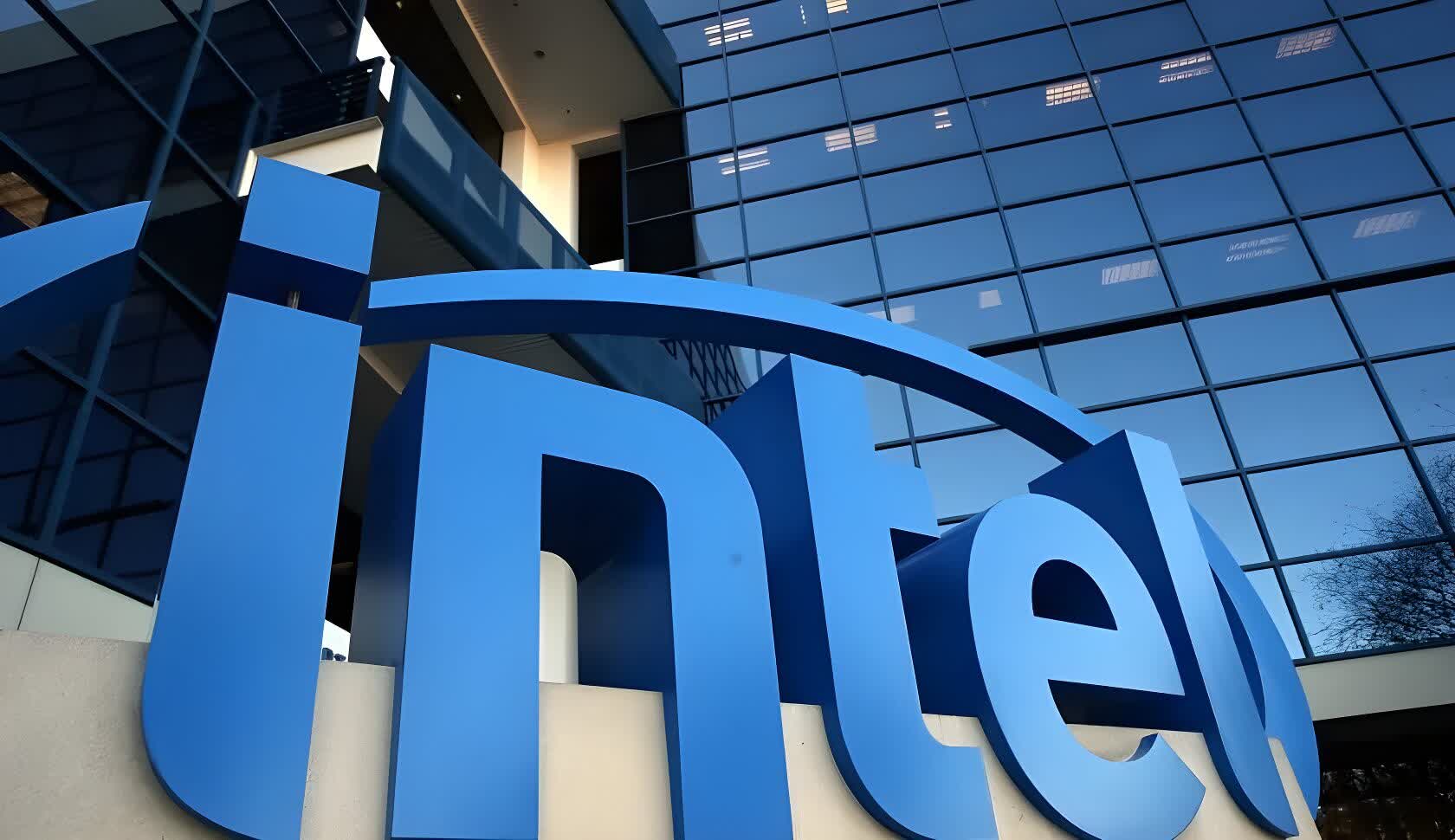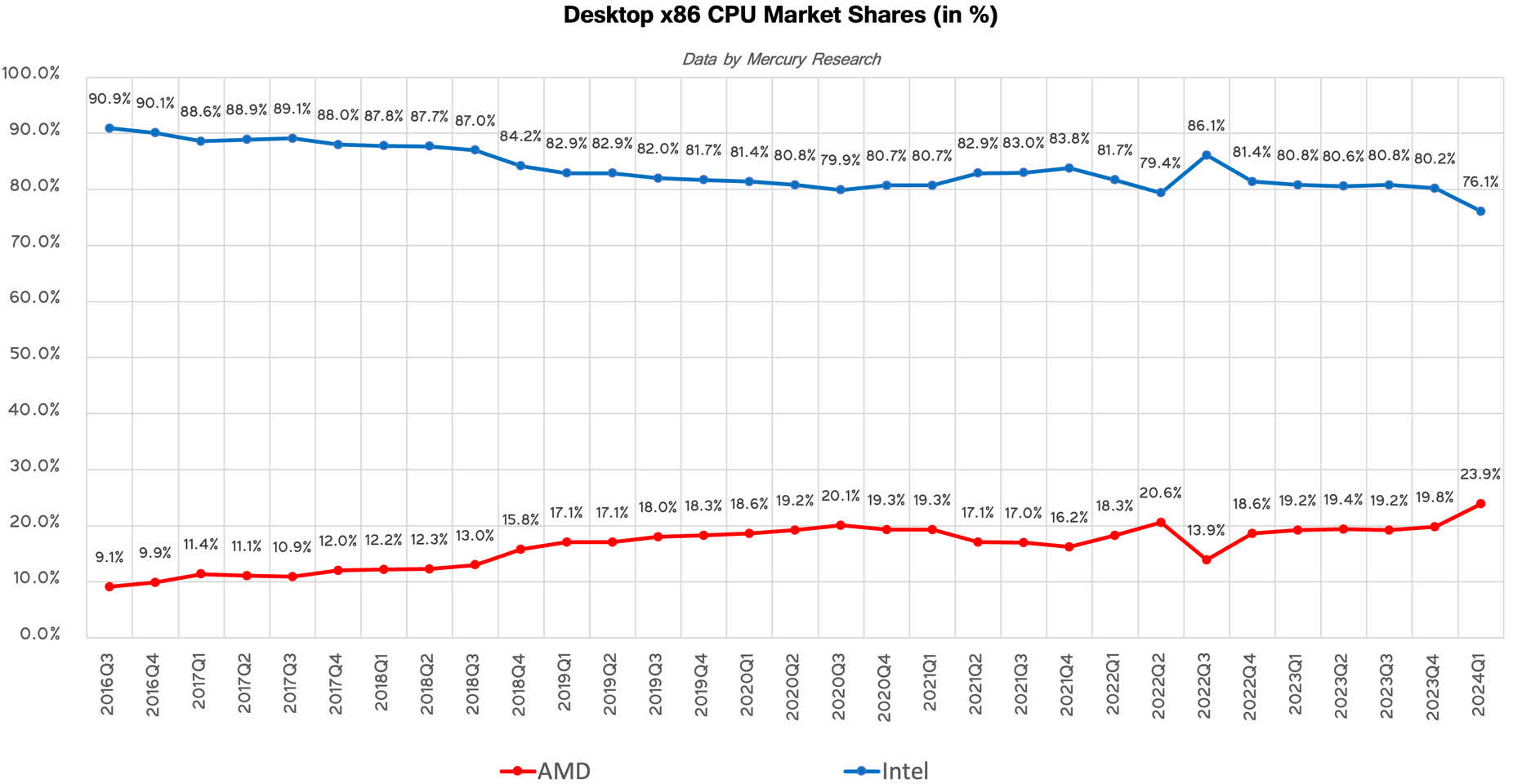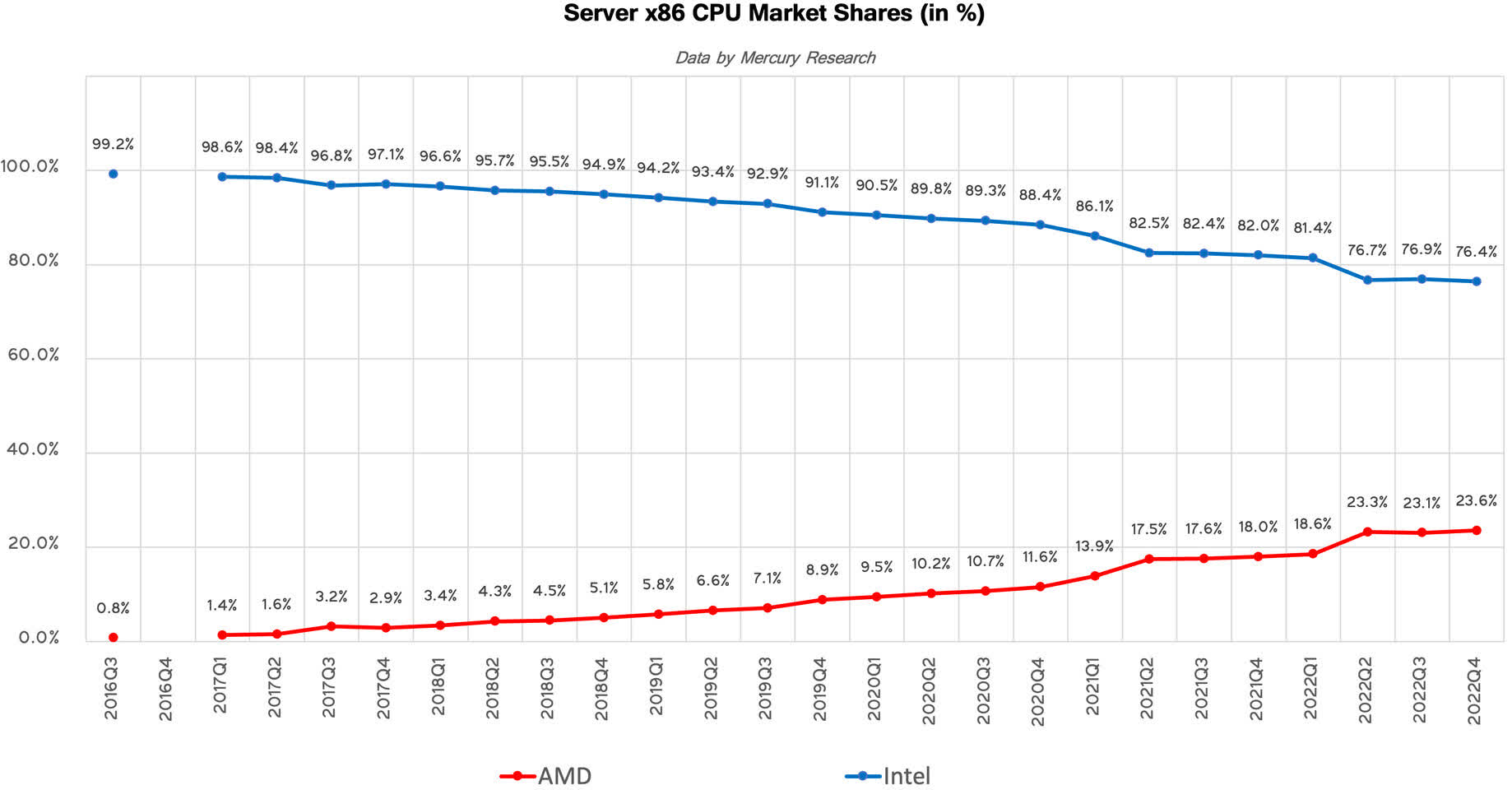In brief: Intel looks set to join the list of companies that are making massive cuts to their workforces this year. Team Blue is reportedly letting go of thousands of employees as it looks to reduce costs amid increasing pressure from shareholders and a declining market performance.
Intel hasn't yet made the cuts official, but an announcement may arrive as early as this week, writes Bloomberg, which cites anonymous people familiar with the company's plans.
Intel has had to sit and watch as rival tech giant Nvidia rose to the third most valuable company in the world, thanks to the generative AI boom mostly powered by its advanced chips.
Intel has also seen its CPU market share slowly eroded by AMD over the years. Chipzilla CPUs are still found in two-thirds of Steam survey participants' machines and figures from Mercury Research (graphs above and below) show the same kind of trend going on desktop and mobile CPUs, while the impact is more profound in the profitable server market. AMD has slowly but surely increased its user share.
Professional workstation users seem even more likely to opt for Team Red. Custom PC builder Puget Systems' Hardware Trends survey for 2023 shows that Threadripper and Threadripper Pro chips made up 90% of its workstation orders last year.
Bloomberg notes that Intel CEO Pat Gelsinger has been investing heavily in research and development, such as the fab manufacturing program, designed to bring the company back to prominence in the semiconductor industry.
Intel reduced its workforce by around 5% in 2023 to 124,800, having begun job cuts in October 2022. The company said the cost reductions are expected to save it up to $10 billion by 2025.
Intel will report its second-quarter earnings on Thursday, July 31. Analysts expect that growth for the quarter will be flat compared to the same period a year earlier, though Wall Street believes growth will increase slightly in the second half of 2024, with sales increasing 3% to $55.7 billion for the full year, marking the first annual revenue increase since 2021.
Intel is also dealing with a crashing CPU crisis right now. The company says the problem stems from a faulty microcode algorithm that is overvolting the Raptor Lake processors. A patch will arrive next month, but it is not a guaranteed fix and is more to prevent unaffected processors from experiencing issues. Those who have already suffered damage will have to replace their CPUs.


